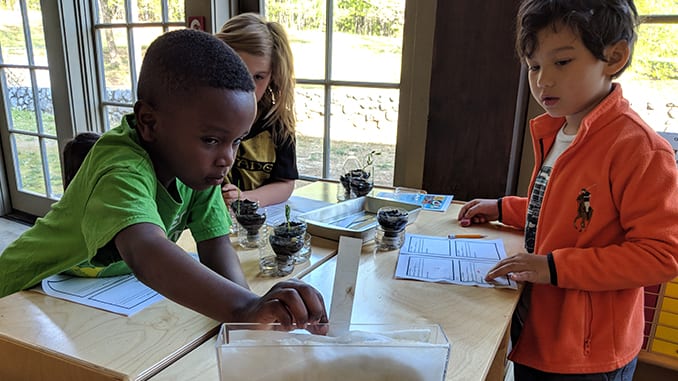
Should you send your child to public school or private school?
Published: October 31, 2018
By: Paige Townley
When it comes to being a parent, there are dozens of decisions that have to be made every day in regards to what is best for their children. And as the child gets older, those questions don’t get any easier—in fact, they can get more challenging. For example: should you send your child to public school or private school? Like with any decision, there are always pros and cons on both sides. Here, we talked with private school experts who share the top four reasons why you should be thinking about private school.
Smaller Class Sizes
A lower student to teacher ratio is rather typical in any private school, and there are many benefits to that, such as a greater interaction between students and more opportunities for collaboration between students and their teachers, noted Thomas Goldsmith, director of admissions at The Altamont School. “It also means that your child is truly going to be known by his or her teacher,” Goldsmith says. “At a private school, students aren’t going to slip through the cracks. They will be known and cared for.”
For example, at The Altamont School, the administration and staff is given the opportunity to get to know students, and a specific faculty advisor is assigned to each student to meet with daily. “They meet daily for about 10 minutes and talk about information for the day, go over any questions the student may have talked about academic schedules, and social opportunities around campus,” adds Julie Beckwith director of communication. “That’s just one example of a greater level of personal interaction between students and teachers that can happen with smaller class sizes.”
The smaller class sizes also means that students have an easier opportunity to develop communication skills, adds Dr. Melinda Bray, co-founder/education director of The Hillsboro School. “Students develop their voice because classrooms are small,” she says. “Children learn how to communicate with other people and often talk in class more.”
Individualized Learning
Each student learns differently, and often private schools can capitalize on that and provide more individualized learning opportunities. “Children learn in different ways, and private schools often employ a variety of learning approaches that accommodate the varying needs of children,” notes Rebecca Little, head of school for Joseph Bruno Montessori Academy.
The Hillsboro School was founded on the idea of teaching children based on how they learn, so that means the school doesn’t teach children simply based on their age, adds Dr. Bray. “We teach kids where they are ready to learn and not how old they are,” she says. “So as they learn concepts, they move on to the next concepts. They don’t have to sit around and wait for other children who may be taking a little longer.”
Diverse Curriculum Options
Oftentimes a private school provides a greater opportunity to access more educational programs, specifically the arts. For instance, at Advent Episcopal School, every student from pre-K through eighth grade take art, French, and music. There is no requirement to select just one per year or semester. “We know the benefits that having access to the arts as part of early foundation education is really helpful later on,” says Claire Cassady Vaughn, the school’s director of advancement. “More often than not, in private schools you have a more equitable access to those different programs because the schedule is designed to make sure it accommodates those important programs. Often, either due to volume or funding, public schools aren’t in a position to allow students to take that many at a time. Public schools may have the options, but students usually have to pick. They can’t take them all.”
Private school curriculums also often allow more opportunities for away-of-school learning experiences, instead of just being a few pre-selected destinations for entire classrooms. For example, The Hillsboro School allows students to take all sorts of field trips, and they can be for just one or two students and not an entire classroom. “Our students actually help plan their field trips,” Dr. Bray says. “They start that in elementary school, and they report back on the places they go. For us, field trips are field experiences. Students go with a purpose and know the goals of the visit. We take a lot of field trips because we believe in getting the students out in the real world to apply their learning and see that learning doesn’t just happen in the classroom.”
Diverse Student Body
In addition to a diverse curriculum, private schools also offer diversity within the classroom. At private schools, students aren’t limited to living within a particular community or zip code. “We enrolled 80 new students for this school year, and they came from 40 different academic programs in Birmingham and beyond,” said Goldsmith. “This creates an ethic diversity, and in today’s increasingly global community, it’s important for students to understand, appreciate, and collaborate with a wide range of perspectives and experiences.”
